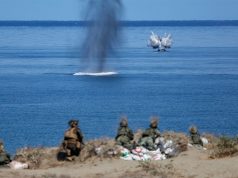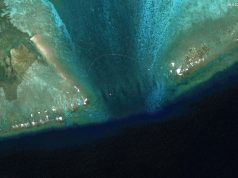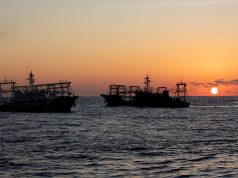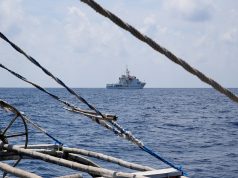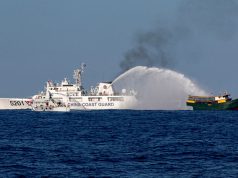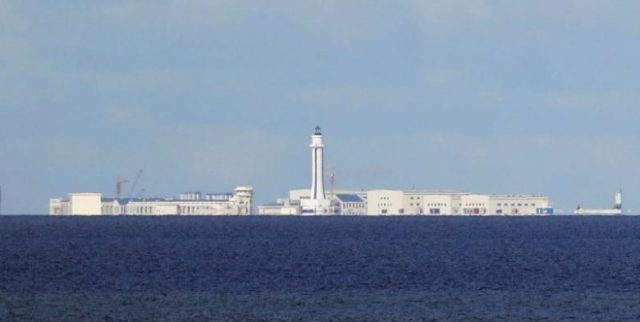
DAVAO CITY, Philippines – Guess who’s in town for a visit: three warships from China’s navy, docking at the Sasa Wharf just after two ASEAN presidents launched a new shipping route linking the Philippine cities of Davao and General Santos to Bitung, Indonesia.
The ships arrived for a goodwill visit also on the same day that the Philippines, as country chair for the Association of Southeast Asian Nations’ 30th Summit this year, released the Chairman’s final statement that was seen as giving Beijing “a pass” on the issue of the South China Sea. In contrast to the 2016 Chairman’s Statement and the draft for the 2017 ASEAN statement seen Saturday by reporters, the final statement omitted mention of China’s land reclamation and militarization, and a firm reference to the UNCLOS.
The Chinese vessels – a missile destroyer, a missile frigate and a replenishment ship – will stay in the country three days before sailing to more than 20 other countries in Asia, Europe, Africa and Oceania on a 180-day expedition, which Chinese Ambassador Zhao Jianhua described as the “longest expedition of the Chinese navy.”
The goal of the Davao port call is to improve and widen the avenues for communication, friendship and cooperation between the Philippine Navy and China People’s Liberation Army.
Goodwill games and tours of the ships have been lined up for visitors.
According to the Chinese ambassador to the Philippines, this is the first time a foreign navy vessel will visit Davao, with most such port calls done in Manila’s South Harbor.
Davao Mayor Sara Duterte said China picked Davao because her father, President Rodrigo Duterte, is from there and the city was more receptive to their offer to show the warships.
Mayor Duterte believes that despite the problems in the West Philippine Sea, the port call of the Chinese warships could be a good start to better understanding between the two navies.
Mayor Duterte said everyone acknowledges there is a problem in the West Philippine Sea, “but this is a good start in opening channels of communication between the Chinese navy and Philippine navy; maybe they can sit down and talk and maybe when they see each other in the [sea], alam nila gagawin nila at nagkakaintindihan sila at [kung] ano’ng gagawin doon [they’d know what to do and understand each other when they sea each other at sea].”
She characterized the visit as “a goodwill visit for peace and friendship between China and Philippines,” adding that Beijing “particularly chose Davao City because the President lives here and Davao [has been] highlighted recently because of the president.”
“Meron talaga siyang missiles, torpedos – hindi everyday nakakakita ng ganito [It has missiles, torpedos – it’s not every day that one can see this].”
Chinese Ambassador Jianhua, for his part, said the port call “would open up a new phase of friendly exchanges not only between two navies but between two peoples. This visit is more than special and significant because it marks the first ever visit by foreign navy vessels to Davao.”




